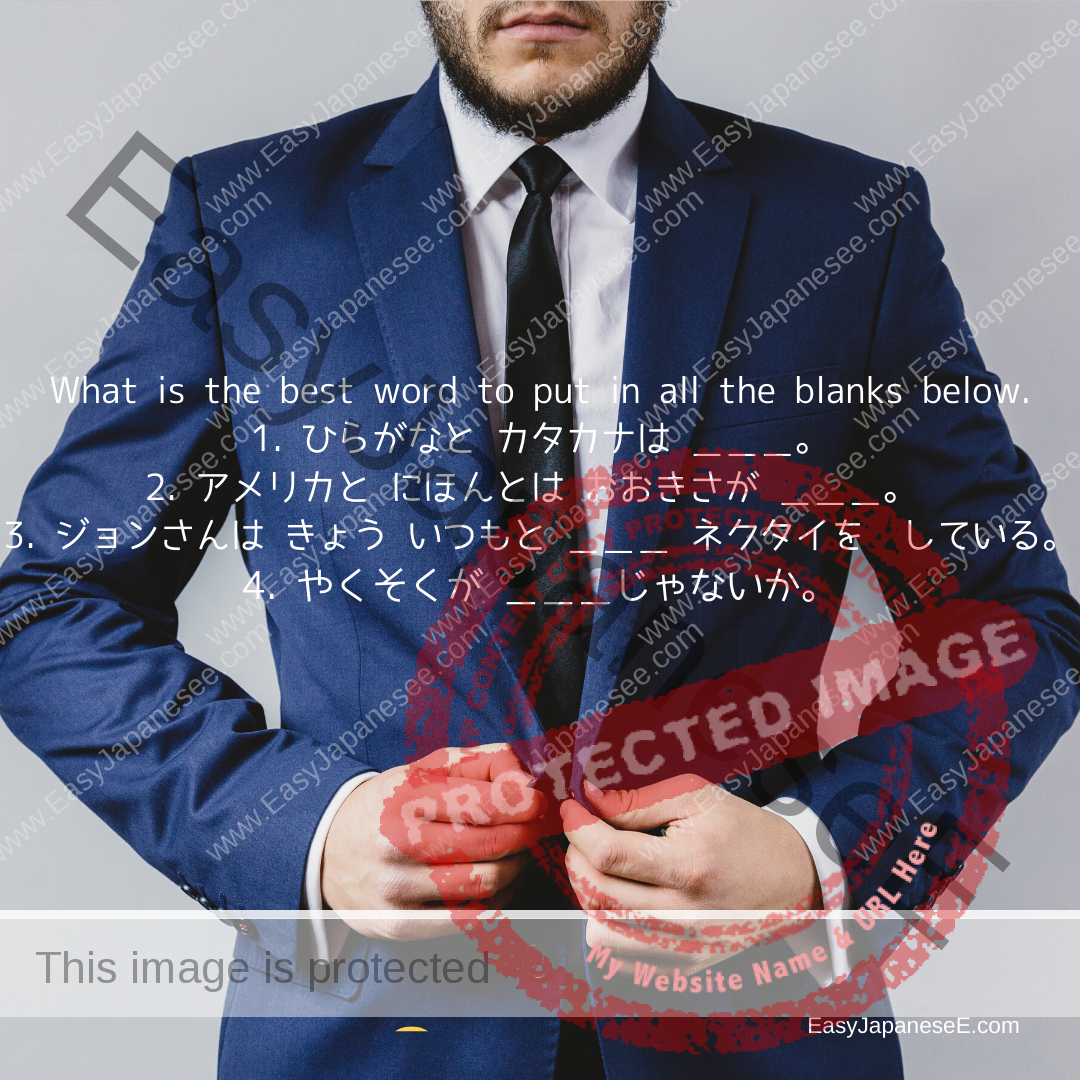
What is the best word to put in all the blanks below.
- ひらがなと カタカナは ___。
- アメリカと にほんとは おおきさが ___。
- ジョンさんは きょう いつもと ___ ネクタイを している。
- やくそくが ___じゃないか。
The answer is the intransitive verb 違(ちが)う. It is a verb but the usage is similar to the English adjective “different.”
The translation of each sentence with ちがう is:
- Hiragana and Katakana are different.
- America and Japan are of different sizes.
- Today John wears a different tie from always.
- This is NOT what we agreed on.
You should remember the particles used with this sentence pattern.
When you are comparing [A] and [B]:
[A]と [B]は ちがう。
or
[A]は [B]と ちがう。
If you are adding a criterion by which you are comparing the two, you add [criterion]が
[A]と [B](と)は [criterion]が ちがう。
or
[A]は [B]と [criterion]が ちがう。
If what you are comparing is obvious, you can skip [A] and/or [B] as shown in the examples 3 and 4. ([A] is omitted in 3 and both [A] and [B] are omitted in 4.)

